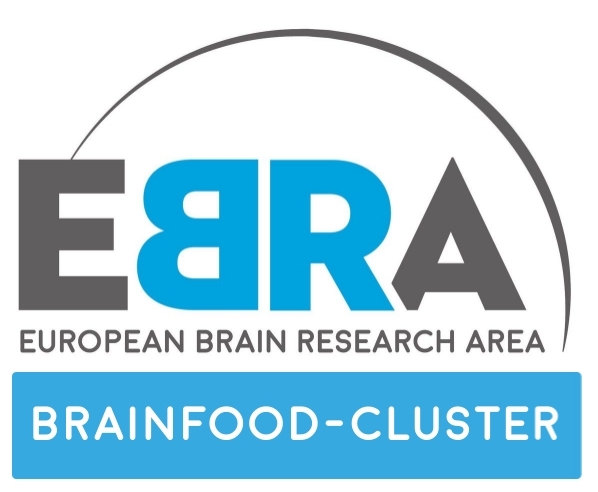
Coordinator
Prof. Roger AdanCo-Coordinator
Prof. Suzanne DicksonBRAINFOOD CLUSTER
The overarching objective of the BRAINFOOD cluster is to ultimately positively impact on brain health by improving nutrition of European citizens based upon fundamental insights in the bidirectional links between brain health and nutrition. In line with the EBRA concept, it is our mission to work together, synergistically and in a coordinated and non-fragmented manner, to specifically identify knowledge gaps and priorities in ways that can impact on the societal challenge of improving brain health through nutrition. At all levels, and where possible, gender will be taken into account.
CLUSTER DESCRIPTION
Many of the members of our cluster are (or have been) involved in EU-funded or European-wide projects specifically dedicated to understanding the neurobiological processes linking nutrition and brain health (e.g. by metabolic, endocrine and gut microbiota signalling) and the role of genes and environment in shaping this outcome. BRAINFOOD, established in 2017 as the ECNP Nutrition Network, includes experts from academia and industry, mainly neuroscientists, nutritionists, psychiatrists, psychologists or geneticists with an interest in the impact of nutrition on mental health. We have key experts in gut-brain signaling (hormones, vagal afferents, gut microbiota, inflammatory signals), neuroendocrine regulations, metabolites/nutrients, and the neural systems involved (revealed through genetics, epidemiology, functional brain imaging, behavioural models in rodents and morphological, biochemical and molecular neuroscience tools).


